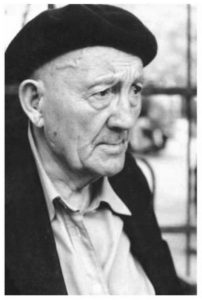Nationalism
Posted By Petre Țuțea On In North American New Right | Comments Disabled268 words
Translator’s Note:
The following is drawn from Petre Țuțea, 322 de vorbe memorabile ale lui Petre Țuțea (Bucharest: Humanitas, 2009 [1993]), “Naționalism,” 79-80.
We have been accused, we on the Right, of exaggerating the power of the nation. All peoples do so. The Germans consider themselves to be the navel of the world, the English consider themselves to be the two navels of the world, the French consider themselves to be the three-and-a-half navels of the world. Everyone believes his own nation is the navel of the world.
Romanianism meant, for our generation, that we should be ourselves. To be on the Left means to be up a gum-tree. Every people wants to be itself. And we also wanted, we on the Right, to be Romanian.
I am Romanian and, as a Romanian, I consider myself to be at the navel of the world; that if I were not Romanian, I would not be anything. I cannot imagine myself as French, English, or German. I mean that I cannot extrapolate my spiritual substance to another nation. I am Romanian by vocation. Everything that I think becomes Romanian.
If there is a science of nationhood, I am Romanian by profession.
Nationalism can also be practiced with decency. No one can forbid a people from living its tradition and history, with its glories and defeats. Pârvan[1] [2] says: ethnicity is the point of departure and the universal point of arrival. I, as a nationalist, have long thought that the nation is the end-point of world evolution. When the nations disappear, we enter the Tower of Babel.
Note
[1] [3] Vasile Pârvan (1882-1927), a Romanian historian and archaeologist, known for his work on ancient Dacia.
